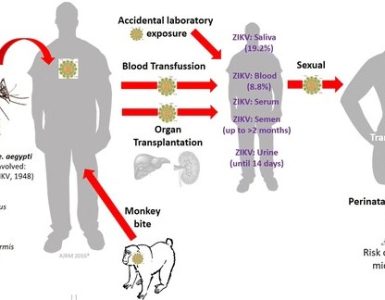
Drug resistance is becoming more severe and many infections are no longer easily cured, leading to prolonged and expensive treatment and greater risk of death, warns WHO on World Health Day. Under the theme “Combat Drug Resistance”, WHO calls for urgent and concerted action by governments, health professionals, industry and civil society and patients to slow down the spread of drug resistance, limit its impact today and preserve medical advances for future generations.
On the brink of losing miracle cures
“The message on this World Health Day is loud and clear. The world is on the brink of losing these miracle cures,” said WHO Director-General Dr Margaret Chan. “In the absence of urgent corrective and protective actions, the world is heading towards a post-antibiotic era, in which many common infections will no longer have a cure and, once again, kill unabated.”
Measures to combat drug resistance
Today, WHO is publishing a policy package that sets out the measures governments and their national partners need to combat drug resistance. The policy steps recommended by WHO include:
- develop and implement a comprehensive, financed national plan
- strengthen surveillance and laboratory capacity
- ensure uninterrupted access to essential medicines of assured quality
- regulate and promote rational use of medicines
- enhance infection prevention and control
- foster innovation and research and development for new tools.
The discovery and use of antimicrobial drugs to treat diseases such as leprosy, tuberculosis, gonorrhea and syphilis changed the course of medical and human history. Now, those discoveries and the generations of drugs that followed them are at risk, as high levels of drug resistance threaten their effectiveness.
Drug resistance is a natural biological phenomenon, through which microorganisms acquire resistance to the drugs meant to kill them. With each new generation, the microorganism carrying the resistant gene becomes ever more dominant until the drug is completely ineffective. Inappropriate use of infection-fighting drugs (underuse, overuse or misuse) causes resistance to emerge faster.
Resistance detected in a number of diseases
Last year, at least 440 000 new cases of multidrug resistant-tuberculosis were detected and extensively drug-resistant tuberculosis has been reported in 69 countries to date. The malaria parasite is acquiring resistance to even the latest generation of medicines, and resistant strains causing gonorrhea and shigella are limiting treatment options. Serious infections acquired in hospitals can become fatal because they are so difficult to treat and drug-resistant strains of microorganism are spread from one geographical location to another in today’s interconnected and globalized world. Resistance is also emerging to the antiretroviral medicines used to treat people living with HIV.
Getting everyone on the right track
“On this World Health Day, WHO is issuing a policy package to get everyone, especially governments and their drug regulatory systems, on the right track, with the right measures, quickly,” said Dr Chan. “The trends are clear and ominous. No action today means no cure tomorrow. At a time of multiple calamities in the world, we cannot allow the loss of essential medicines – essential cures for many millions of people – to become the next global crisis.”
“WHO has established many initiatives to understand and address drug resistance over the last decade, particularly in relation to some of the world’s most deadly infectious diseases,” said Dr Mario Raviglione, Director of WHO Stop TB Department, who has been leading the preparations for World Health Day 2011. “Those measures must now be further strengthened and implemented urgently across many diseases and across many sectors. New collaborations, led by governments working alongside civil society and health professionals, if accountable, can halt the public health threat of drug resistance.”
Everyone can make a contribution
Although governments need to take the lead and develop national policies to combat drug resistance, health professionals, civil society and other groups can also make important contributions. For example, doctors and pharmacists can prescribe and dispense only the drugs that are required to treat a patient, rather than automatically giving either the newest or best-known medicines. Patients can stop demanding that doctors give them antibiotics when they may not be appropriate. Health professionals can help rapidly reduce the spread of infection in health care facilities.
Collaboration between human and animal health and agriculture professionals is also vital, as the use of antibiotics in food animal production contributes to increased drug resistance. Approximately half of current antibiotic production is used in agriculture, to promote growth and prevent disease as well as to treat sick animals. With such massive use, those drug resistant microbes generated in animals can be later transferred to humans.
Governments and partners need to work closely with industry to encourage greater investment in research and development of new diagnostics that can help improve decision making as well as drugs to replace those that are being lost to resistance. Today, less than five per cent of products in the research and development pipeline are antibiotic drugs. Innovative incentive schemes are needed to stimulate industry to research and develop new antimicrobial drugs for the future.
Source: World Health Organisation

















